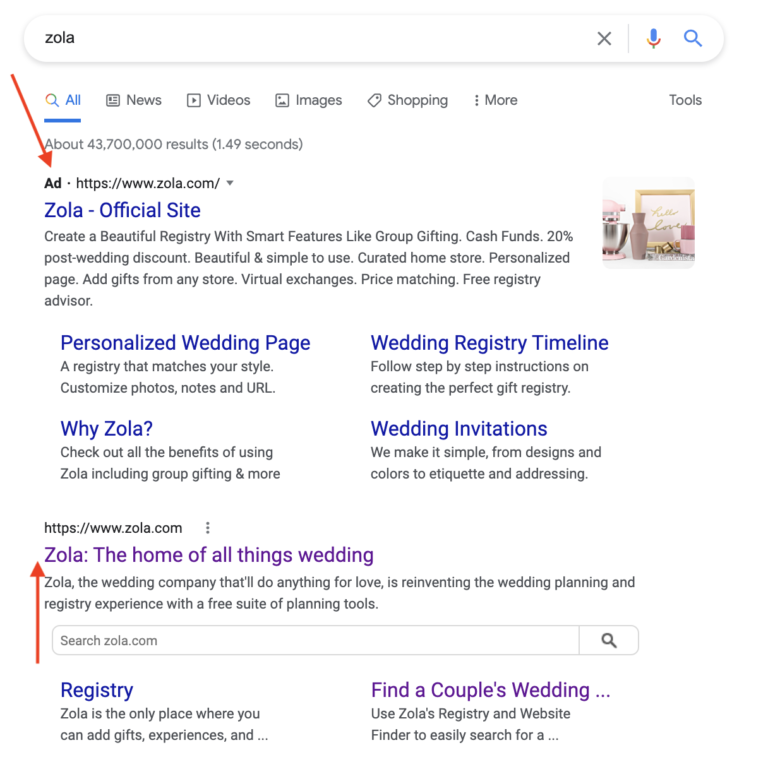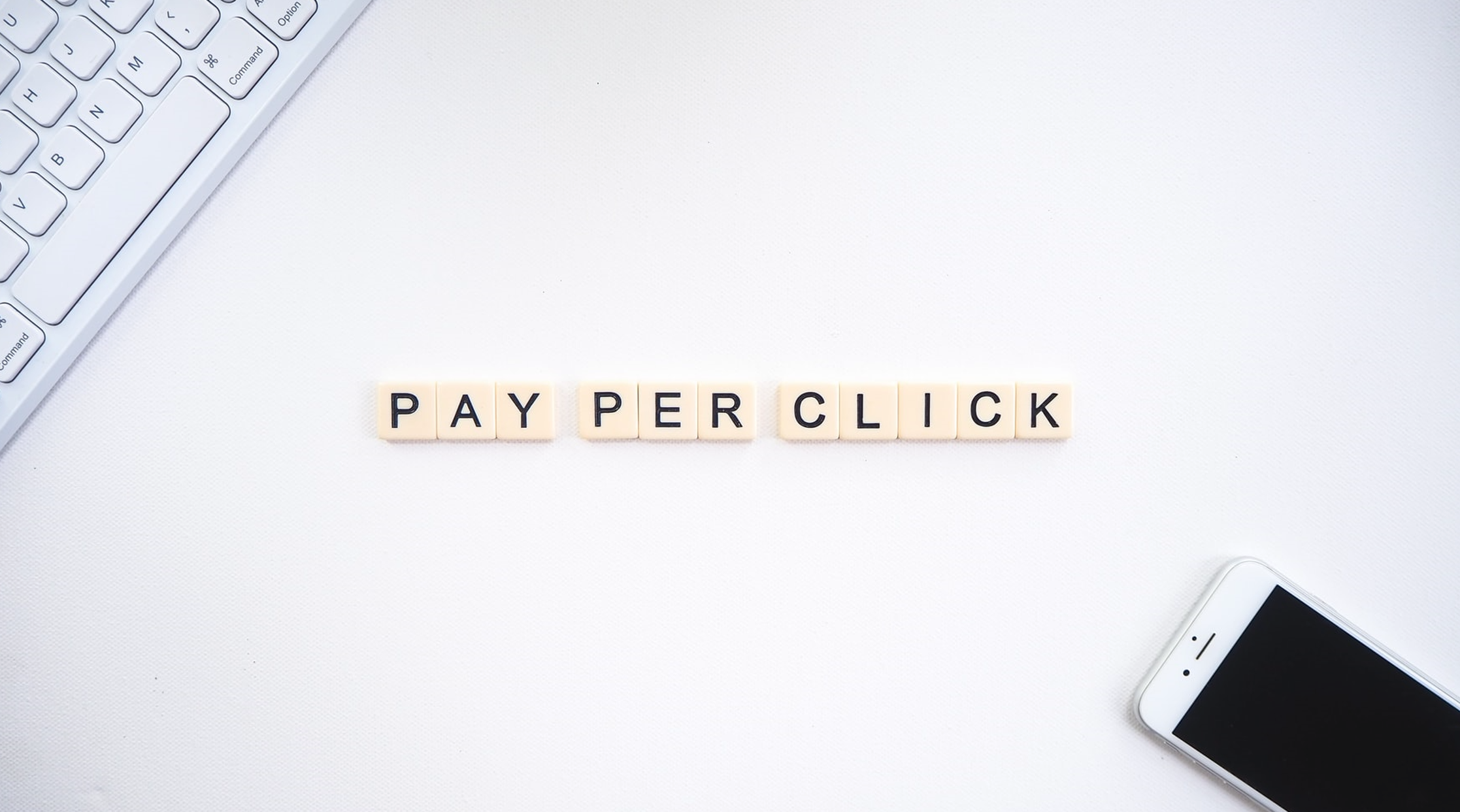So, you want to advertise your new product, or draw in new customers because you just won the most prestigious award of the century, or perhaps simply let people know that your brand exists and has the best answers to their problems. What do you do?
- Create two dozen pay-per-click (PPC) campaigns for all your favorite brand keywords
- Create one pay-per-click campaign and change it one week in after it doesn’t get amazing results
- Offer all your employees a free puppy if they tell everyone they know
Table of Contents

Are you surprised that none of those are the right answer? Yes, not even A and B. While you’ve probably guessed that PPC is going to help you (thanks eye-catching title!), creating a successful PPC campaign involves far more than simply deciding to pursue paid advertising. It involves insight, strategy, and flexibility.
This guide will give you what you need to know to understand PPC and get started creating game-changing campaigns.
Trust us, we’ve helped companies achieve:
- Over 1000 leads in the first five months of a campaign
- 195% ROI
- $442,000 in closed sales with $150,000 ad spend

Before we get started, if you are a nonprofit, check out our Google Ad Grants post. It walks you through how to apply and access $120,000 a year of free advertising.
Okay, here we go.
What is PPC?
This guide is specifically for Google Ads. That means that for our purposes, pay-per-click advertising means that you bid to have your ad featured at the top of Google’s search results and then pay every time someone clicks on that ad.
This means that it’s very important to create ads that appeal to your target audience so that you are attracting qualified leads more often than not. It also means it’s important to strategically determine when your ad should appear, and when it shouldn’t.
For example, if your company has a unique name like Stellar Onions, Inc. and someone searches for “stellar onions,” it’s likely that your website is going to be one of Google’s first displayed search results. If your ad is also set up to appear when anyone searches for that term, it’s going to appear above any organic results. This means that someone might click on it instead of clicking on a result that appears slightly lower down the page.
You’ve now paid for someone to come to your website when they were already going to do that, and when your website was already a top search result. See why that’s a problem?

Surprisingly this is something that we see pretty frequently and it always makes us cringe. Don’t worry though. If you’ve fallen into this pit, now you know to climb out.
When should I create an advertising campaign?
There are a number of different reasons you might want to pursue paid ads. Here are a few:
- You’re trying to improve your overall SEO and brand awareness
- You want to establish yourself in a new market
- You want more people to complete a certain task, such as signing up for your newsletter, entering a contest, or downloading your app
- You want to let people know about an important sale
We could go on and on, but we think that gives you a good idea. Basically, PPC can be used to support a number of end goals, and the great news is that the success rate of ads can be easily measured with Google Analytics.
For instance, you can see how many times your ads have appeared (impressions), how many times they’ve been clicked, and how many times they drove conversions (achieved your end goals).
This lets you see the bottom line and helps you determine how ads need to be tweaked for the best ROI.
When should I not use paid advertising?

You don’t want paid advertising to be the one-legged stool supporting your business. It’s important to have an integrated marketing strategy that uses any number of tools, including PPC, website content, video content, bylines and thought leadership pieces, etc. You need to establish a strong domain authority for your website, build a high click-through-rate (CTA) through organic traffic, and encourage other sites to backlink to your site. All of these measures tell Google that your website is trusted, reliable, and helping people. This makes it more likely that you will appear on the first page of search results and remain there.
For this reason we would never recommend that someone use PPC solely to establish domain authority and a strong web presence.
We would also not recommend PPC if someone has a very constrained budget. While you don’t have to bid thousands of dollars to be successful, and you can certainly optimize ads over time so that you pull in more from closed sales than you are spending on advertising, you do still need to have a budget to work with. Many people actually prefer to click on an organic search result rather than a paid result. For that reason, we’d recommend someone with a tight budget focus on generating the best website content possible, and optimize their website functionality, rather than use PPC. If you’re looking for more help in this area, check out our Google Search Console blog post.
How much does PPC cost?
The short answer is as much as you want it to.
Truly.
While more competitive keywords will cost more, you can always choose to bid on lower priced, but just as effective keywords instead. The key is having the tightest definition of “effective” possible in terms of your end goals. If you have a clear understanding of your goals and your market, you can perform in-depth keyword research and determine what search terms – highly competitive and otherwise – are going to get you the gold medal.

Google also allows you to set a daily budget for each ad. Once you’ve reached your monthly limit, your ad will not be shown again until the following month. You’ll never be charged more than your monthly max.
What do I need for a winning campaign?
The first thing you need is a well-defined goal. Think through exactly what you want to achieve and who your target audience is. For example, are you targeting people of a certain age? A certain profession? A certain location? Make sure you know the answer before moving on.
Next, you need to perform keyword research so that you can identify highly-searched, in-demand keywords and high-volume topics. This data will inform you of the ways your audience thinks about your topic, the ways they are already searching for it, and the kinds of answers they are looking for. Here are some of our favorite keyword research tools.
After selecting your keywords, you need to create your ad content. Focus on content that will tell Google that your ad is relevant, and tell searchers that you are the best answer to their problem.
- Highlight what makes your company unique – why are you the better choice?
- Include at least one of your keywords, but don’t keyword stuff – you want your ad to be well-written, not an annoying, repetitive list of keywords
- Be specific and include prices, sales, exclusive deals, etc. – anything that will entice someone to click through
Now you’ll need to organize your keywords and ads into campaigns and ad groups. Ad groups are built around different criteria, such as location or theme. So Group A might be all your ads for one country, and Group B your ads for another; or, Group A might be all your ads for your new contest, and Group B your ads for your newsletter. Whatever makes the most sense to you. Campaigns are the broadest level of organization and will be based on the focus areas of your organization. You’ll want to have at least 3 ads per ad group, and at least 2 ad groups per campaign.
Finally, if necessary, you need to create optimized landing pages for your ads.
While this is complicated, it doesn’t have to be stress-inducing. If you don’t have a PPC master on your team, you can always give us a call and let us manage the entire process for you.
Is my ad always going to appear first if I bid the highest amount?
No. Google factors in what it calls a “quality score” when determining what order to display ads. This score takes into account how useful your ad will be for Google’s millions of users. If someone writes a more relevant ad, or provides a local service and Google determines that location matters in this specific search, their ad will appear first.
Will my ads start appearing immediately?
It will take a while for Google to learn exactly when your ad should be displayed, so don’t fret if your fantastically written ad isn’t showing consistently at first. It will.
Your ads will also need to be tweaked over time as you gather data and see what’s working and what isn’t. This is part of the process, so don’t feel frustrated when things aren’t perfect right out the door. Everyone has to make changes as they discover how their keywords, ads, and landing page are performing.
Putting it all together
Okay, now that you’ve read through how everything works, let’s look back at our incorrect options from the beginning of this post:
- Create two dozen pay-per-click (PPC) campaigns for all your favorite brand keywords
- Create one pay-per-click campaign and change it one week in after it doesn’t get amazing results
Can you now tell why those are not the most strategic approaches?
With (A), companies are spreading themselves too thin. Every ad campaign needs a lot of focused attention – from creation to monitoring. Two dozen campaigns created willy-nilly for favorite keywords are not going to deliver the results you want. Now, if you have a large marketing team at your beck and call with half-a-dozen PPC experts, that’s a different story. Still though, remember that quality is far more important than quantity.
As for (B), this company is too impatient. It takes time for ads to display consistently, so making an abrupt change after one week is not the way to go.
Ready for Success

Now you’ve got the basics and can see what it takes to create lead-funneling ads. If you’re searching for the fastest way to industry domination, we recommend talking to some real PPC masters, people who have spent years learning not just the tricks of the trade but all the nuances as well. Give us a call today.



